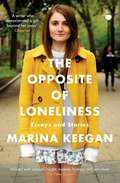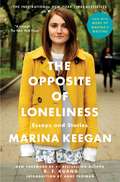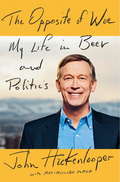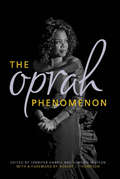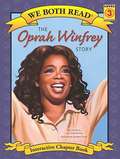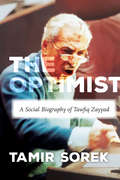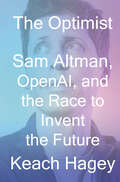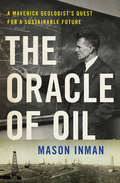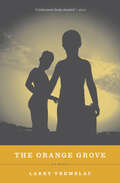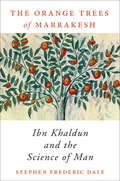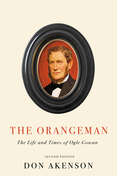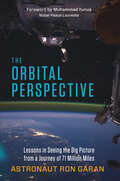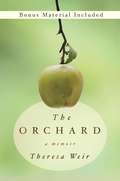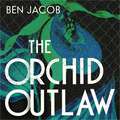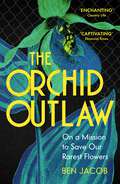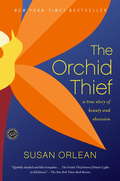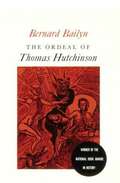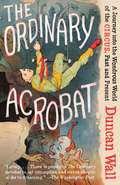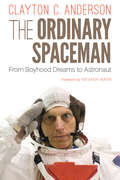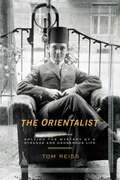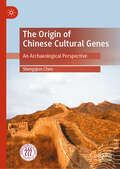- Table View
- List View
The Opposite of Loneliness: Essays and Stories
by Marina Keegan‘A generation-defining collection published posthumously…Her voice is relevant, sharp, fresh, unfiltered and poetic, with a dry wit. You can dive in and out of her questioning and her musings and meanderings. So much promise’ Jenna Coleman, star of Doctor Who and Victoria Marina Keegan's star was on the rise when she graduated from Yale in May 2012. She had a play that was to be produced at the New York International Fringe Festival and a job waiting for her at the New Yorker. Tragically, five days after graduation, Marina died in a car crash. As her family, friends and classmates, deep in grief, joined to create a memorial service for Marina, her unforgettable last essay for the Yale Daily News, 'The Opposite of Loneliness', went viral, receiving more than 1.4 million hits. She had struck a chord. Even though she was just 22 when she died, Marina left behind a rich, expansive trove of prose that, like her title essay, captures the hope, uncertainty and possibility of her generation. The Opposite of Loneliness is an assemblage of Marina's essays and stories that articulates the universal struggle we all face as we work out what we aspire to be and how we can harness our talents to make an impact on the world.
The Opposite of Loneliness: Essays and Stories (An Inspirational Bestseller)
by Marina KeeganThe instant New York Times bestseller and publishing phenomenon: Marina Keegan&’s posthumous collection of award-winning essays and stories &“sparkles with talent, humanity, and youth&” (O, The Oprah Magazine).Marina Keegan’s star was on the rise when she graduated magna cum laude from Yale in May 2012. She had a play that was to be produced at the New York Fringe Festival and a job waiting for her at The New Yorker. Tragically, five days after graduation, Marina died in a car crash. Marina left behind a rich, deeply expansive trove of writing that, like her title essay, captures the hope, uncertainty, and possibility of her generation. Her short story “Cold Pastoral” was published on NewYorker.com. Her essay “Even Artichokes Have Doubts” was excerpted in the Financial Times, and her book was the focus of a Nicholas Kristof column in The New York Times. Millions of her contemporaries have responded to her work on social media. As Marina wrote: “We can still do anything. We can change our minds. We can start over…We’re so young. We can’t, we MUST not lose this sense of possibility because in the end, it’s all we have.” The Opposite of Loneliness is an unforgettable collection of Marina’s essays and stories that articulates the universal struggle all of us face as we figure out what we aspire to be and how we can harness our talents to impact the world. “How do you mourn the loss of a fiery talent that was barely a tendril before it was snuffed out? Answer: Read this book. A clear-eyed observer of human nature, Keegan could take a clever idea...and make it something beautiful” (People).
The Opposite of Woe: My Life in Beer and Politics
by Maximillian Potter John HickenlooperThe maverick (and very funny) governor of Colorado tells his story, from early loss tocollege on the ten-year plan, to remarkable business and later political successIn just over a decade, John Hickenlooper has gone from a craft-brew entrepreneur to mayor of Denver to governor of Colorado, hailed by many political analysts, the New York Times, and Fox News alike as a solid contender to be the next vice president. It is an unlikely tale of success, quintessentially American yet utterly exceptional. In The Opposite of Woe, Hickenlooper tells his own story of determination and daring, from business to politics, in his singularly sharp and often hilarious voice.After taking ten years to graduate from Wesleyan, Hickenlooper found himself laid off from his first job as a geologist in the oil industry. Lacking a day job, he rented a space in one of Denver's sketchiest neighborhoods and opened a brew pub. Honest, likable, and practical, Hickenlooper turned out to be a natural at running a restaurant; the pub was a huge success and did a great deal to revitalize a struggling neighborhood. In fifteen years, he blossomed from a small business owner into a millionaire at the helm of a string of pubs in Denver and across the country. He was such an influential member of the community that he acted on the encouragement of many and ran for mayor, essentially as a lark.And then he won. So began an eight year run as one of the most creative and successful mayors in the United States. Hickenlooper doubled down on his political career by running for Colorado governor in 2010, which he also won, then won again. He has tackled a host of pressing and volatile issues in a true battleground state: immigration, fracking, capital punishment, guns, the Affordable Care Act, same-sex marriage, legalized marijuana. Time and again, his administration has persuaded ideologically opposed constituencies to agree on a middle path and move forward--all while dealing with a tragic series of wildfires,"biblical" floods, shootings, and the assassination of a cabinet member.On display throughout is the rare candidness that has made him not only wildly popular at every step of the way, but also remarkably successful at getting things done. Co-written with journalist and former cabinet member Maximillian Potter, The Opposite of Woe is a fresh--and refreshing--angle on our political landscape from one of its brightest rising stars.
The Oprah Phenomenon
by Jennifer Harris and Elwood Watson&“Excellent essays&” on a business empire, a cultural phenomenon, and the nature of the extraordinary bond between Oprah Winfrey and her fans (Journal of Social History). Oprah Winfrey has built an empire on her ability to connect with and inspire her audience. No longer just a name, &“Oprah&” has become a brand representing a unique style of self-actualizing individualism. The cultural and economic power wielded by Winfrey merits critical evaluation. The contributors to The Oprah Phenomenon examine the origins of her public image and its substantial influence on politics, entertainment, and popular opinion. Contributors address praise from her supporters and weigh criticisms from her detractors. Winfrey&’s ability to create a feeling of intimacy with her audience has long been cited as a foundation of her popularity. She has made headlines by engaging and informing her audience with respect to her personal relationships to race, gender, feminism, and New Age culture. The Oprah Phenomenon explores these relationships in detail. At the root of Winfrey&’s message is her assertion that anyone can be a success regardless of background or upbringing. The contributors scrutinize this message: What does this success entail? Is the motivation behind self-actualization, in fact, merely the hope of replicating Winfrey&’s purchasing power? Is it just a prescription to buy the products she recommends and heed the advice of people she admires, or is it a lifestyle change of meaningful spiritual benefit? The Oprah Phenomenon asks these and many other difficult questions to promote a greater understanding of Winfrey&’s influence on the American consciousness. &“Identifies the common threads that run through Oprah&’s empire, the demographics of her audience, how she brings together women of diverse backgrounds, and her use of empathy and encouragement to foster self-improvement.&” ―Library Journal With a foreword by Robert J. Thompson
The Oprah Winfrey Story (We Both Read)
by Sindy Mckay Lisa MariaOprah Winfrey was born into poverty and struggled with a very difficult and troubled life as a young girl. Yet, Oprah has become one of the most influential people in the world, inspiring millions to create a better life for themselves and others. The story of her life is a powerful reminder of how dreams can be realized through determination, perseverance, and the kindness of a helping hand.
The Oprah Winfrey Story: Speaking Her Mind
by Geraldine WoodsA biography of talk show host Oprah Winfrey, the first woman to own her own talk show and the first black woman to own her own production company.
The Optimist: A Social Biography of Tawfiq Zayyad (Stanford Studies in Middle Eastern and Islamic Societies and Cultures)
by Tamir SorekTawfiq Zayyad (1929–94) was a renowned Palestinian poet and a committed communist activist. For four decades, he was a dominant figure in political life in Israel, as a local council member, mayor of Nazareth, and member of the Israeli parliament. Zayyad personified the collective struggle of the Palestinian citizens of Israel, challenging the military government following the creation of the state of Israel, leading the 1976 nationwide strike against land confiscation, and tirelessly protesting Israeli military occupation after 1967. With this book, Tamir Sorek offers the first biography of this charismatic figure. Zayyad's life was one of balance and contradiction—between his revolutionary writings as Palestinian patriotic poet and his pragmatic political work in the Israeli public sphere. He was uncompromising in his protest of injustices against the Palestinian people, but always committed to a universalist vision of Arab-Jewish brotherhood. It was this combination of traits that made Zayyad an exceptional leader—and makes his biography larger than the man himself to offer a compelling story about Palestinians and the state of Israel.
The Optimist: Sam Altman, OpenAI, and the Race to Invent the Future
by Keach Hagey“The first major biography of tech’s newest titan, this sets a high bar for those to follow.”—Publishers Weekly, starred review “An exemplary blend of biography, financial technology reportage, and futurology.”—Kirkus, starred review From an acclaimed Wall Street Journal reporter comes the first biography of the enigmatic leader of the AI revolution, charting his ascent within the tech world as well as his ambitions for this powerful new technology. On November 30, 2022, OpenAI released ChatGPT, a chatbot that captivated the world with its uncanny ability to hold humanlike conversations. Not even a year later, on November 17, 2023, Sam Altman, the CEO of OpenAI, was summarily fired on a video call by the company’s board. The firing made headlines around the globe: OpenAI is the leader in the race to build AGI—artificial general intelligence, or AI that can think like a human being—and Altman is the most prominent figure in the field. Yet it was mere days before Altman was back running the company he had co-founded, with most of the directors who voted to fire him themselves removed from the board. The episode was a demonstration of how quickly the industry is moving, and of Altman’s power to bend reality to his will. In The Optimist, the Wall Street Journal reporter Keach Hagey presents the most detailed account yet of Altman’s rise, from his precocious childhood in St. Louis to his first, failed startup experience; his time as legendary entrepreneur Paul Graham’s protégé and successor as head of Y Combinator, the start-up accelerator where Altman became the premier power broker in Silicon Valley; the founding of OpenAI and his recruitment of a small yet superior team; and his struggle to keep his company at the cutting edge while fending off determined rivals, including Elon Musk, a former friend and now Altman’s bitter opponent. Hagey conducted more than 250 interviews, with Altman’s family, friends, teachers, mentors, co-founders, colleagues, investors, and portfolio companies, in addition to spending hours with Altman himself. The person who emerges in her portrait is a brilliant dealmaker with a love of risk, who believes in technological progress with an almost religious conviction—yet who sometimes moves too fast for the people around him. With both the promise and peril of AI increasing by the day, Hagey delivers a nuanced, balanced, revelatory account of the individual who is leading us into what he himself has called “the intelligence age.” Altman is a figure out of Isaac Asimov or Neal Stephenson. Or he is the author himself: if it feels as though we have all collectively stepped into a science fiction short story, it is Altman who is writing it.
The Oracle of Oil: A Maverick Geologist's Quest for a Sustainable Future
by Mason InmanThe first comprehensive biography of Marion King Hubbert, the "father of peak oil." In 1956, geologist and Shell Oil researcher Marion King Hubbert delivered a speech that has shaped world energy debates ever since. Addressing the American Petroleum Institute, Hubbert dropped a bombshell on his audience: U.S. oil production would peak by 1970 and decline steadily thereafter. World production would follow the same fate, reaching its peak soon after the turn of the millennium. In battles stretching over decades, Hubbert defended his forecasts against opponents from both the oil industry and government. Hubbert was proved largely correct during the energy crises of the 1970s and hailed as a "prophet" and an "oracle." Even amid our twenty-first-century fracking boom, Hubbert's underlying logic holds true--while remaining a source of debate and controversy. A rich biography of the man behind peak oil, The Oracle of Oil follows Hubbert from his early days as a University of Chicago undergraduate to his first, ill-fated forays into politics in the midcentury Technocracy movement, and charts his rise as a top geologist in the oil industry and energy expert within the U.S. government. In a deeply researched narrative that mines Hubbert's papers and correspondence for the first time, award-winning journalist Mason Inman rescues the story of a man who shocked the scientific community with his eccentric brilliance. The Oracle of Oil also skillfully situates Hubbert in his era: a time of great intellectual ferment and discovery, tinged by dark undercurrents of intellectual witch hunts. Hubbert emerges as an unapologetic iconoclast who championed sustainability through his lifelong quest to wean the United States--and the wider world--off fossil fuels, as well as by questioning the pursuit of never-ending growth. In its portrait of a man whose prescient ideas still resonate today, The Oracle of Oil looks to the past to find a guiding philosophy for our future.
The Orange Grove: A Novel
by Larry TremblayThe author of The Bicycle Eater shares “a fluid and troubling fable” of brotherhood, tragedy, and the limits of art, written in “a subtle and fine poetry” (La Presse, CA).Twin brothers Amed and Aziz live in the peaceful shade of their family’s orange grove. But when a bomb kills the boys’ grandparents, the war that plagues their country changes their lives forever. Blood must repay blood. And in order to avenge their grandparents’ deaths, one brother must offer the ultimate sacrifice.Years later, the surviving twin—now a student actor in wintry Montreal—is given a role which forces him to confront the past. Author Larry Tremblay, an actor and director himself, poses the difficult question: can art ever adequately address suffering? Both current and timeless, The Orange Grove depicts the haunting inheritance of war and its aftermath.
The Orange Trees of Marrakesh: Ibn Khaldun and the Science of Man
by Stephen Frederic DaleAn examination of Khaldun’s Islamic history of the premodern world, its philosophical underpinnings, and the author himself.In his masterwork Muqaddimah, the Arab Muslim Ibn Khaldun (1332–1406), a Tunisian descendant of Andalusian scholars and officials in Seville, developed a method of evaluating historical evidence that allowed him to identify the underlying causes of events. His methodology was derived from Aristotelian notions of nature and causation, and he applied it to create a dialectical model that explained the cyclical rise and fall of North African dynasties. The Muqaddimah represents the world’s first example of structural history and historical sociology. Four centuries before the European Enlightenment, this work anticipated modern historiography and social science.In Stephen F. Dale’s The Orange Trees of Marrakesh, Ibn Khaldun emerges as a cultured urban intellectual and professional religious judge who demanded his fellow Muslim historians abandon their worthless tradition of narrative historiography and instead base their works on a philosophically informed understanding of social organizations. His strikingly modern approach to historical research established him as the premodern world’s preeminent historical scholar. It also demonstrated his membership in an intellectual lineage that begins with Plato, Aristotle, and Galen; continues with the Greco-Muslim philosophers al-Farabi, Avicenna, and Averroes; and is renewed with Montesquieu, Hume, Adam Smith, and Durkheim.Praise for The Orange Trees of Marrakesh“Stephen Dale’s book contains a careful account of the dizzying ups and downs of Ibn Khaldun’s political and academic career at courts in North Africa, Andalusia and Egypt. For these and other reasons The Orange Trees of Marrakesh deserves careful and respectful attention.” —Robert Irwin, The Times Literary Supplement (UK)“Historian Stephen Frederic Dale argues that Ibn Khaldun’s work is a key milestone on the road from Greek to Enlightenment thought, chiming with the radical reasoning of philosophers such as Montesquieu and Adam Smith.” —Barbara Kiser, Nature“Dale’s interest in Greco-Islamic philosophy contributes to this biography’s uniqueness . . . This work provides indispensable background information to truly appreciate this single most influential Islamic historian.” —R. W. Zens, Choice“Excellent scholarship on a fascinating subject.” —Publishers Weekly
The Orangeman, Second Edition: The Life and Times of Ogle Gowan, Second Edition
by Don AkensonFrom the end of the Napoleonic Wars to Confederation, central Canada was awash with migrants from the British Isles and their cultural values. The raw prejudice that they brought with them – against the French, the Catholics, and even Yanks and Europeans – bound together the eventual political majority in Ontario. The Orangeman uses the life of Ogle Gowan, an Irish Protestant upstart from County Wexford who turned central Canada Orange, to explore these forces.Gowan was ambitious, malicious, and mendacious, but by the time of Confederation the Orange Order was the largest alliance of men in the country – the foundation of the coalition of conservative Protestants that sculpted Canadian politics in the century that followed. Don Akenson uses his skills as a historian and a novelist in respecting the historical record. The Orangeman is a lively and entertaining fictional biography, and in Akenson’s telling Gowan crosses swords with William Lyon Mackenzie and goes pub-crawling with the young John A. Macdonald.One never knows everything about a historical person or event; sometimes the right thing to do is to speculate sensibly and, if possible, have a little fun along the way. Akenson shows us Canadian loyalism, constitutionalism, and deference to state authority on one side of the coin, and on the flip side, the successful attempt by one group of Canadians to do down the other. This is real history, real life: as yesterday, so today.
The Orbital Perspective: Lessons in Seeing the Big Picture from a Journey of 71 Million Miles
by Ron GaranFor astronaut Ron Garan, living on the International Space Station was a powerful, transformative experience—one that he believes holds the key to solving our problems here on Earth. On space walks and through windows, Garan was struck by the stunning beauty of the Earth from space but sobered by knowing how much needed to be done to help this troubled planet. And yet on the International Space Station, Garan, a former fighter pilot, was working work side by side with Russians, who only a few years before were “the enemy.” If fifteen nationalities could collaborate on one of the most ambitious, technologically complicated undertakings in history, surely we can apply that kind of cooperation and innovation toward creating a better world. That spirit is what Garan calls the “orbital perspective.”Garan vividly conveys what it was like learning to work with a diverse group of people in an environment only a handful of human beings have ever known. But more importantly, he describes how he and others are working to apply the orbital perspective here at home, embracing new partnerships and processes to promote peace and combat hunger, thirst, poverty, and environmental destruction. This book is a call to action for each of us to care for the most important space station of all: planet Earth. You don't need to be an astronaut to have the orbital perspective. Garan's message of elevated empathy is an inspiration to all who seek a better world.
The Orchard: A Memoir
by Theresa Weir**eBook Bonus Edition includes photos by author Theresa Weir**THE ORCHARD is the story of a street-smart city girl who must adapt to a new life on an apple farm after she falls in love with Adrian Curtis, the golden boy of a prominent local family whose lives and orchards seem to be cursed. Married after only three months, young Theresa finds life with Adrian on the farm far more difficult and dangerous than she expected. Rejected by her husband's family as an outsider, she slowly learns for herself about the isolated world of farming, pesticides, environmental destruction, and death, even as she falls more deeply in love with her husband, a man she at first hardly knew and the land that has been in his family for generations. She becomes a reluctant player in their attempt to keep the codling moth from destroying the orchard, but she and Adrian eventually come to know that their efforts will not only fail but will ultimately take an irreparable toll.
The Orchid Outlaw: On a Mission to Save Britain's Rarest Flowers
by Ben JacobThe fascinating story of one man's mission to track down and rescue rare orchids from destruction on the building sites of Britain.Ben Jacob is an orchid thief. He spends his life (and risks prison) tracking down rare orchids and rescuing them from unwitting destruction on the building sites and greenbelt developments of Britain. This is his story.Ben fell in love with orchids as a nine-year-old, when his parents bought him a Cymbidium. That love then led him to spend his twenties in various tropical cities, teaching English and exploring jungles where exotic orchid species grew wild, pollinated by hummingbirds, huge moths and more. After a decade abroad, Ben returned to the UK. Here, his passion re-ignited when he encountered a colony of Bee orchids, a cryptic species which tricks bees into mating with its flowers. Ben was entranced. Having long seen Britain's orchids as pale imitations of their tropical cousins, he changed his mind completely and set out to find and photograph all fifty-one British species.Reading and learning everything he could, Ben realised that Britain's orchids are in desperate trouble. Some, such as Summer's Lady Tresses, have gone extinct; others, such as the magnificently strange Ghost Orchid, have not been seen since 2009; all have experienced vertiginous declines. Changes in land use and climate are responsible, but so too are Britain's outdated environmental and planning laws, which seem incapable of protecting rare species in the face of the drive to build new homes and infrastructure.That's how Ben turned outlaw. He began saving orchids slated for destruction, digging them out in the middle of the night and replanting them in safe places, all this while knowing that the work he was doing was illegal, for if arrested Ben could have been fined £5,000 for each wild orchid plant he saved, and he might even have faced prison.Part memoir, part fascinating history of our most exotic and yet overlooked flower, this is nature writing with a real story. Ben shares with us his mission, and raises urgent questions about our environmental legislation.The world needs more Bens.(P) 2023 Hodder & Stoughton Limited
The Orchid Outlaw: On a Mission to Save Britain's Rarest Flowers
by Ben JacobTEN YEARS AGO, BEN JACOB TURNED OUTLAW TO SAVE OUR RAREST FLOWERS. THIS IS HIS STORY.Obsessed by orchids since childhood, Ben spent years travelling to far-flung jungles to see them in the wild. Then a chance encounter set him off on a journey of discovery into the wonderful, but often forgotten, world of Britain's fifty-one native species. These include the Bee which looks (and smells) so much like one that even bees are fooled, the Ghost which exists without sunlight, and Autumn Lady's Tresses which gave Darwin the proof he needed for his theory of evolution.But our orchids are in desperate trouble. Many species are facing extinction. Decimated by changes in land use and climate, inadequately protected by environmental and planning laws, their habitats are disappearing fast. Determined to act before it was too late, Ben broke into building sites in the dead of night to rescue threatened plants, and turned his kitchen into a laboratory, his fridge into storage for hundreds of baby orchids, and his back yard into a plantation. But doing all that put him on the wrong side of the law. . . At once a memoir, a natural history, and an inspiring call to action, reintroducing us to Britain's most endangered flowers, The Orchid Outlaw shows us how we can all save the world, one plant at a time.
The Orchid Thief: A True Story of Beauty and Obsession
by Susan OrleanIn Susan Orlean's mesmerizing true story of beauty and obsession is John Laroche, a renegade plant dealer and sharply handsome guy, in spite of the fact that he is missing his front teeth and has the posture of al dente spaghetti. In 1994, Laroche and three Seminole Indians were arrested with rare orchids they had stolen from a wild swamp in south Florida that is filled with some of the world's most extraordinary plants and trees. Laroche had planned to clone the orchids and then sell them for a small fortune to impassioned collectors. After he was caught in the act, Laroche set off one of the oddest legal controversies in recent memory, which brought together environmentalists, Native Amer-ican activists, and devoted orchid collectors. The result is a tale that is strange, compelling, and hilarious. New Yorker writer Susan Orlean followed Laroche through swamps and into the eccentric world of Florida's orchid collectors, a subculture of aristocrats, fanatics, and smugglers whose obsession with plants is all-consuming. Along the way, Orlean learned the history of orchid collecting, discovered an odd pattern of plant crimes in Florida, and spent time with Laroche's partners, a tribe of Seminole Indians who are still at war with the United States. There is something fascinating or funny or truly bizarre on every page of The Orchid Thief: the story of how the head of a famous Seminole chief came to be displayed in the front window of a local pharmacy; or how seven hundred iguanas were smuggled into Florida; or the case of the only known extraterrestrial plant crime. Ultimately, however, Susan Orlean's book is about passion itself, and the amazing lengths to which people will go to gratify it. That passion is captured with singular vision in The Orchid Thief, a once-in-a-lifetime story by one of our most original journalists.
The Ordeal of Thomas Hutchinson
by Bernard Bailyn“This book,” the author writes, “depicts the fortunes of a conservative in a time of radical upheaval and deals with problems of public disorder and ideological commitment.” It is at the same time a dramatic account of the origins of the American Revolution from the viewpoint, not of the winners who became the Founding Fathers, but of the losers, the Loyalists. By portraying the ordeal of the last civilian royal governor of Massachusetts, the author explains “what the human reality was against which the victors struggled” and in doing so makes the story of the Revolution fuller and more comprehensible.
The Ordinary Acrobat: A Journey into the Wondrous World of the Circus, Past and Present
by Duncan WallThe extraordinary story of a young man's plunge into the unique and wonderful world of the circus--taking readers deep into circus history and its renaissance as a contemporary art form, and behind the (tented) walls of France's most prestigious circus school. When Duncan Wall visited his first nouveau cirque as a college student in Paris, everything about it--the monochromatic costumes, the acrobat singing Simon and Garfunkel, the juggler reciting Proust--was captivating. Soon he was waiting outside stage doors, eagerly chatting with the stars, and attending circuses two or three nights a week. So great was his enthusiasm that a year later he applied on a whim to the training program at the École Nationale des Arts du Cirque--and was, to his surprise, accepted. Sometimes scary and often funny, The Ordinary Acrobat follows the (occasionally literal) collision of one American novice and a host of gifted international students in a rigorous regimen of tumbling, trapeze, juggling, and clowning. Along the way, Wall introduces readers to all the ambition, beauty, and thrills of the circus's long history: from hardscrabble beginnings to Gilded Age treasures, and from twentieth-century artistic and economic struggles to its brilliant reemergence in the form of contemporary circus (most prominently through Cirque du Soleil). Readers meet figures past--the father of the circus, Philip Astley; the larger-than-life P. T. Barnum--and present, as Wall seeks lessons from innovative masters including juggler Jérôme Thomas and clown André Riot-Sarcey. As Wall learns, not everyone is destined to run away with the circus--but the institution fascinates just the same. Brimming with surprises, outsized personalities, and plenty of charm, The Ordinary Acrobat delivers all the excitement and pleasure of the circus ring itself.
The Ordinary Spaceman: From Boyhood Dreams to Astronaut
by Nevada Barr Clayton C. AndersonWhat’s it like to travel at more than 850 MPH, riding in a supersonic T-38 twin turbojet engine airplane? What happens when the space station toilet breaks? How do astronauts “take out the trash” on a spacewalk, tightly encapsulated in a space suit with just a few layers of fabric and Kevlar between them and the unforgiving vacuum of outer space?The Ordinary Spaceman puts you in the flight suit of U.S. astronaut Clayton C. Anderson and takes you on the journey of this small-town boy from Nebraska who spent 167 days living and working on the International Space Station, including more than forty hours of space walks. Having applied to NASA fifteen times over fifteen years to become an astronaut before his ultimate selection, Anderson offers a unique perspective on his life as a veteran space flier, one characterized by humility and perseverance. From the application process to launch aboard the space shuttle Atlantis, from serving as a family escort for the ill-fated Columbia crew in 2003 to his own daily struggles—family separation, competitive battles to win coveted flight assignments, the stress of a highly visible job, and the ever-present risk of having to make the ultimate sacrifice—Anderson shares the full range of his experiences. With a mix of levity and gravitas, Anderson gives an authentic view of the highs and the lows, the triumphs and the tragedies of life as a NASA astronaut.
The Oregon Trail
by Francis ParkmanThe author's journey brings the sight, sound and smell of the Great Plains of the mid-19th century, a dry, treeless land of wild grasses and sagebrush.
The Orientalist: In Search of a Man Caught Between East and West
by Tom ReissOn the border between West and East, a Jewish man with a passion for the Arab world. Tom Reiss first came across Nussimbaum when he went to the ex-USSR to research Russia's oil reserves, and discovered a novel instead. Written on the eve of the Second World War, Ali and Nino is a captivating love story set in the glamorous city of Baku, Azerbaijan's capital. The novel's depiction of a lost cosmopolitan society is enthralling, but equally intriguing is the identity of the man who wrote it.
The Orientalist: Solving the Mystery of a Strange and Dangerous Life
by Tom ReissPart history, part cultural biography, and part literary mystery, The Orientalist traces the life of Lev Nussimbaum, a Jew who transformed himself into a Muslim prince and became a best-selling author in Nazi Germany. Born in 1905 to a wealthy family in the oil-boom city of Baku, at the edge of the czarist empire, Lev escaped the Russian Revolution in a camel caravan. He found refuge in Germany, where, writing under the names Essad Bey and Kurban Said, his remarkable books about Islam, desert adventures, and global revolution, became celebrated across fascist Europe. His enduring masterpiece, Ali and Nino-a story of love across ethnic and religious boundaries, published on the eve of the Holocaust-is still in print today.But Lev's life grew wilder than his wildest stories. He married an international heiress who had no idea of his true identity-until she divorced him in a tabloid scandal. His closest friend in New York, George Sylvester Viereck-also a friend of both Freud's and Einstein's-was arrested as the leading Nazi agent in the United States. Lev was invited to be Mussolini's official biographer-until the Fascists discovered his "true" identity. Under house arrest in the Amalfi cliff town of Positano, Lev wrote his last book-discovered in a half a dozen notebooks never before read by anyone-helped by a mysterious half-German salon hostess, an Algerian weapons-smuggler, and the poet Ezra Pound. Tom Reiss spent five years tracking down secret police records, love letters, diaries, and the deathbed notebooks. Beginning with a yearlong investigation for The New Yorker, he pursued Lev's story across ten countries and found himself caught up in encounters as dramatic and surreal, and sometimes as heartbreaking, as his subject's life. Reiss's quest for the truth buffets him from one weird character to the next: from the last heir of the Ottoman throne to a rock opera-composing baroness in an Austrian castle, to an aging starlet in a Hollywood bungalow full of cats and turtles.As he tracks down the pieces of Lev Nussimbaum's deliberately obscured life, Reiss discovers a series of shadowy worlds-of European pan-Islamists, nihilist assassins, anti-Nazi book smugglers, Baku oil barons, Jewish Orientalists-that have also been forgotten. The result is a thoroughly unexpected picture of the twentieth century-of the origins of our ideas about race and religious self-definition, and of the roots of modern fanaticism and terrorism. Written with grace and infused with wonder, The Orientalist is an astonishing book. From the Hardcover edition.
The Origin of Chinese Cultural Genes: An Archaeological Perspective
by Shengqian ChenThis book first traces the evolution of Chinese culture, which has a triple structure. It traces back to the economic basis of the formation of Chinese culture and analyzes the pattern of the formation of Chinese civilization. The book goes deep into the level of cultural genes, explores the origin of Chinese culture, and discusses the construction of contemporary Chinese culture in combination with the general trend of historical process.
The Origin of Ping-Pong Diplomacy
by Mayumi ItohWhy and how did Japan Table Tennis Association President Goto Koji invite China to participate in the World Table Tennis Championships in Nagoya, Japan, in 1971 (the Nagoya World's)? Against strong opposition at home and abroad, Goto Koji created a stage for Premier Zhou Enlai to launch Ping-Pong Diplomacy, which changed world history forever
